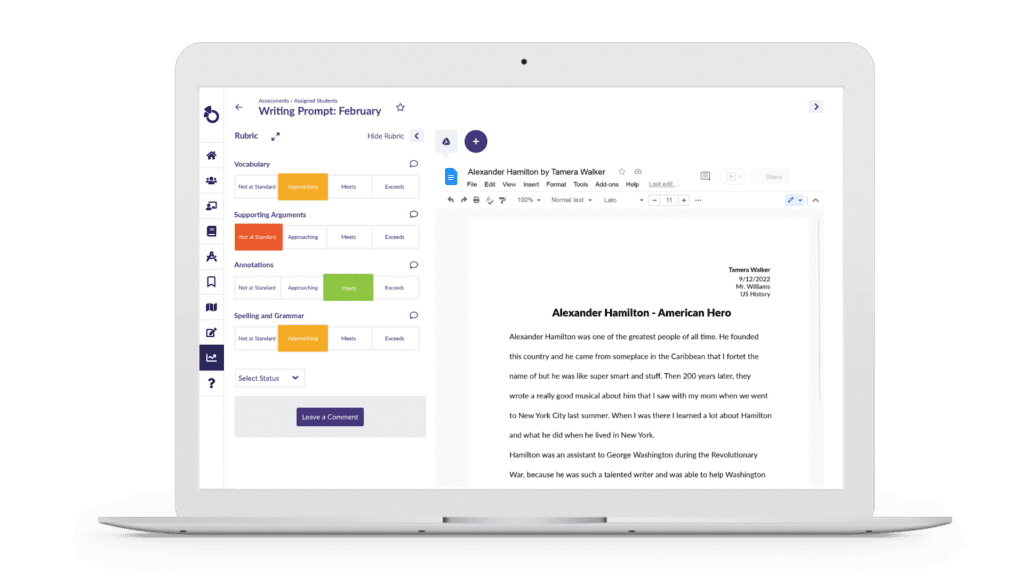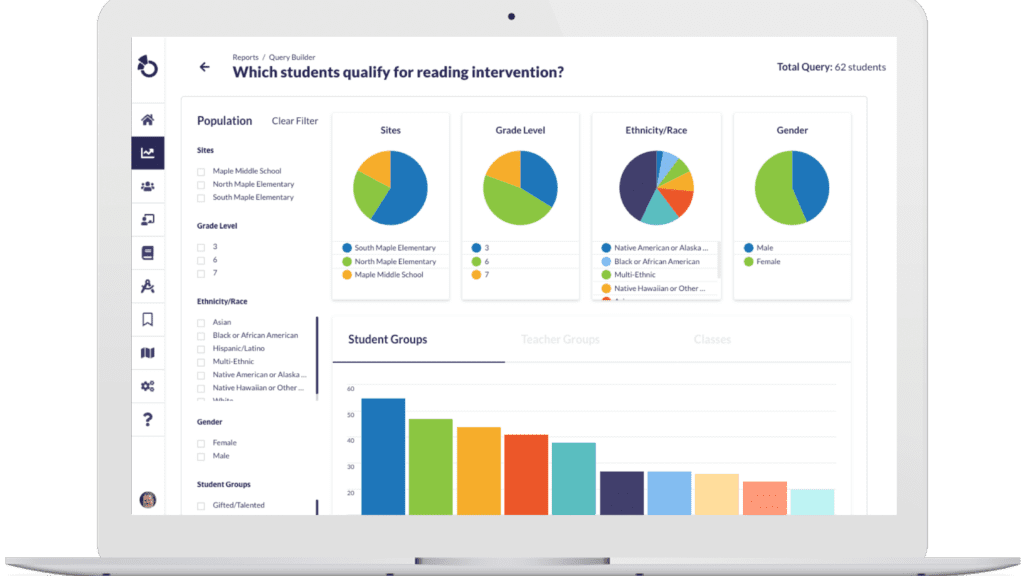Extinguishing the Dumpster Fires of Assessment and Grading Reform
By: Kendell Hunter
How to Navigate 3 Common Challenges Educators Face During a Change of Practice
Becky Peppler, former high school teacher and instructional coach, and Dr. Garth Larson, former director of learning, discuss the most common challenges or “dumpster fires” that educators and administrators face when taking on assessment and grading reform.
This webinar is practical in nature and participants will learn how to develop a plan to address and navigate common challenges that arise when transitioning to more meaningful assessment, grading, and reporting practices.
Becky and Dr. Larson explore the following challenges during this webinar:
- These grading policies won’t work in my content area.
- Won’t this new grading system promote laziness? There’s no accountability for students with this system.
- My child will not be able to get into college or get a job because schools will not understand what they are doing.

Three Major Dumpster Fires Extinguished by Becky and Dr. Larson
1. These grading policies won’t work in my content area
While many educators see proficiency-based grading working in the core subject areas – math, science, and language arts – they’re often unsure if the grading system will work in other areas of learning, such as physical education, art, and social studies, and therefore, hesitant to alter or replace their more traditional grading systems. But the reality is that transforming grading practices works for all content areas.
In Simon Sinnick's “Start With Why,” he references the Golden Circle (pictured below), which is comprised of the “why,” “how,” and “what.” Sinnick says that many organizations don’t establish their “why,” but rather they begin with the “what” and the “how” – here’s what we’re going to do and here’s how we’re going to do it.
For school districts, it’s important to start by looking at the main goal – or the “why” – of reforming grading practices, which is for educators to bring clarity and consistency to what they teach and the knowledge and skills they provide to their students. Once you’ve established the reason for the change, how you’re going to do it, and what it looks like – the “how” and the “what” – fall into place. Simply shifting that mindset oftentimes helps garner buy-in and extinguishes this dumpster fire.

2. There’s no accountability with this new grading system, and it will promote laziness among students
When educators are considering the move to proficiency-based grading, a major concern that often arises is that if students aren’t receiving points in the gradebook for formative work, then students simply won’t complete the assignments. But in reality, a proficiency-based grading system creates more student accountability, it just requires educators to shift where that accountability lies.
For example, if educators wish to grant students an opportunity to be reassessed on a particular standard or assignment, the accountability might come from requiring the student to have completed all the formative work prior to taking the reassessment. Just because the reassessment is without penalty does not mean it’s without process. And in requiring the completion of formative work, educators are ensuring that students are prepared to succeed when the time comes to be reassessed. In a traditional grading system, students take an assessment, receive a score and move on, meaning there was no accountability to the actual learning.
Educators also express concern about the potential loss of accountability when academic and behavioral points are documented and communicated independently of one another. However, instead of holding students accountable by the academic grade they get, they're actually being held accountable as a separate category within their school. For example, if a student receives a low mark for their non-academic skills or behavior, such as practicing kindness, showing respect, and working to do their best, there might be consequences regarding their extracurricular activities or other privileges at school. So students actually see these areas as holding a large amount of accountability. While this system requires educators and students to think a bit differently about where the accountability lies, it actually requires a significant amount of accountability when they remove those non-academic factors and communicate them in a different way.

3. Students won’t be accepted into or succeed in college because the school won’t understand their proficiency-based grades
For many educators and parents, their primary goal is not only to ensure students get into college but to make sure they’re prepared to succeed once they arrive. It’s not uncommon for educators and parents to express concern over if colleges will accept students who were assessed using a proficiency-based grading model, and if they do accept them if the students will thrive. However, the misconception that colleges won't accept students with a proficiency-based scoring model or that these students won’t have a successful college career is usually grounded in misinformation.
One major concern of educators and parents is that colleges won’t understand what’s being reported on by schools using proficiency-based models and, therefore, won’t consider their students for admission. When trying to understand how colleges evaluate students, it's important to consider the factors they look at during the admissions process. While factors such as ACT/SAT scores, grade point average, and class rank may be considered, it's important to note that colleges receive applications from students worldwide. This means that the traditional American grading model is not the only one being used – they’re accustomed to reviewing applications from students who were assessed using a wide array of grading systems and standardized tests. Furthermore, colleges cannot discriminate against students based on their grading system, including those using a proficiency-based model.
"It's important to note that colleges receive applications from students worldwide. This means that the traditional American grading model is not the only one being used – they’re accustomed to reviewing applications from students who were assessed using a wide array of grading systems and standardized tests."
It’s also important to consider the impact of traditional grading practices versus proficiency-based models. Data from Wisconsin, for example, showed a significant percentage of students graduating from high schools using traditional grading systems needing remedial courses in their freshman year of college. This led to an exploration of grading practices in Wisconsin high schools, revealing that compared to proficiency-based practices, traditional grading practices often led to inflated grades, resulting in higher admissions rates but lower proficiency skills.
Becky and Dr. Larson have extensive experience supporting school leaders and teachers with assessment and grading reform as part of their work with FIRST Educational Resources. FIRST is committed to providing current and future educators with the most comprehensive and affordable support available to help improve the overall educational process of teaching, learning, and leading.
Ready to learn more about how Otus can support best practices with grading and assessments in your school community? Get in touch with our team!
Related Resources
Request a demo!
See exactly how Otus can help your school accelerate student growth and improve student outcomes – all while saving educators time.




